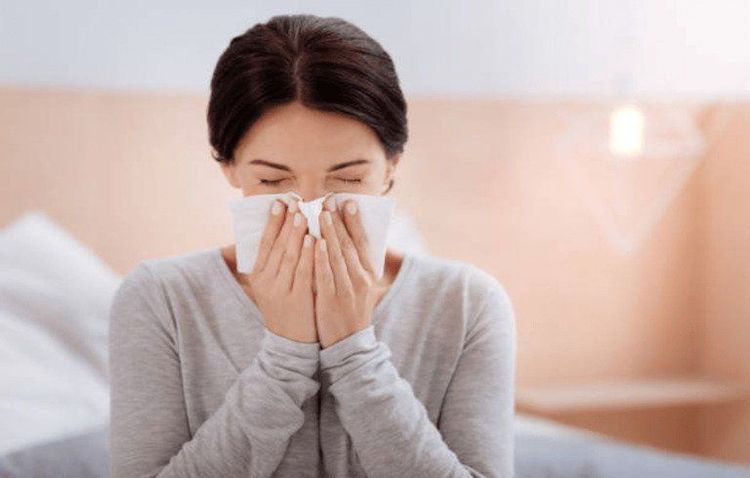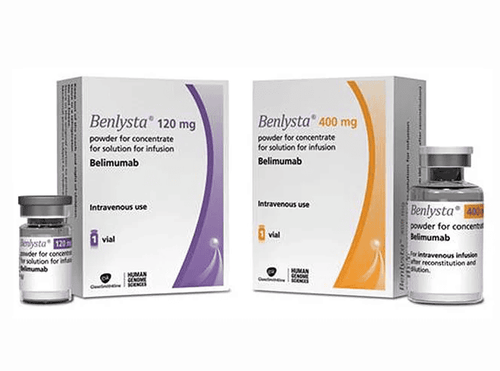This is an automatically translated article.
Carrots bring sweetness, color and nutrition to many dishes. This vegetable contains a lot of beta carotene and fiber. For allergy sufferers, carrots are also full of allergens that are harmful to health. Carrots are more likely to cause allergic reactions when eaten raw than when cooked. So in which people can carrots cause an allergic reaction? Check out the article below to learn more.
As mentioned above, as a member of the parsley-carrot family (Apiaceae), carrots are more likely to cause allergic reactions when eaten raw than when cooked. This is because cooking releases the allergenic proteins in carrots and reduces their impact on the immune system. Allergic reactions to carrots can range from mild to severe. As with any allergy, consult your doctor to make the right treatment decisions in time.
1. Symptoms of a carrot allergy?
Symptoms of carrot allergy are often associated with oral allergy syndrome. Symptoms usually occur when a person eats a raw carrot and holds it in the mouth. However, the symptoms should go away as soon as the person spits out or swallows the carrot. Symptoms of a carrot allergy can include:
Itchy mouth Swelling of the lips, mouth, tongue or throat Itchy ears An itchy throat These symptoms usually do not require treatment or medication.
Carrot allergy can also present with more severe symptoms that may require medication, such as antihistamines. These symptoms include:
Swelling under the skin Honeycomb Difficulty breathing Dizziness Sore throat or chest Difficulty swallowing Sore throat or hoarseness Cough Runny nose Sneezing stuffy nose Itchy eyes Anaphylaxis

Sử dụng carrot có gây dị ứng với triệu chứng nghẹt mũi
Risk factors and cross-reacting foods
For people who are allergic to carrots, there are several other foods and plants to which they may also be allergic. This is called cross-reactivity. For example, people who are allergic to carrots are often allergic to birch pollen. This is because carrots and birch pollen contain similar proteins and can cause the body's immune system to react in a similar way. The body releases histamine and antibodies to fight the proteins, causing allergy-related symptoms.
2. Carrots can cause allergic reactions in people
With that said, a person is more likely to have a carrot allergy if they are allergic to certain other foods and plants, such as birch pollen, which contain proteins similar to those found in carrots. carrot. Allergies to other plants in the parsley and carrot families are also likely to increase your risk. These foods include:
Parsley Yellow Radish Celery Fennel Coriander Fennel Caraway Fennel People may be more susceptible to food allergies if they have a family history of reactions this application. People who often suffer from seasonal allergies or asthma may also have a higher risk of developing food allergies.
3. Diagnosis and treatment of carrot allergy
3.1. Diagnosis Anyone who suspects that they have an allergic reaction should seek medical attention nearest to them. The doctor will likely start by looking at the person's symptoms and family history. They can then order tests to diagnose allergies.
A subcutaneous test, also known as a scratch test, can be used. This test involves a doctor placing a small amount of an allergen, in this case a carrot, onto a person's forearm or back. They then prick or scratch the area, allowing the allergen to enter your skin. If the test result is positive, the patient will develop small red bumps at that location.
The doctor may also suggest that a person follow a special diet for several days and keep a food diary to record what they have eaten and how they feel. This information will help the doctor determine if the person has a food allergy. Depending on the results, the doctor may then suggest that the person eat a small amount of the food suspected of triggering an allergic reaction, and any reactions recorded.
3.2. Treatment of Carrot Allergy The best treatment when you have a carrot allergy is to avoid contact with the vegetables. Doctors may recommend that patients use antihistamines to control or reduce symptoms of an allergic reaction. If a person with a carrot allergy develops symptoms of anaphylaxis, they need immediate medical treatment, including:
Epinephrine Supplemental oxygen Antihistamines and steroids given intravenously Medicines that open the airways and facilitate breathing

Người ăn carrot có gây dị ứng được điều trị theo đơn của bác sĩ
4. Complications of carrot allergy
Although a carrot allergy is uncommon, it can cause serious complications for some people. Occasionally, a systemic reaction, known as anaphylaxis, may occur. Anaphylaxis can occur even if the person previously had only a mild allergic reaction to carrots. It is potentially fatal and requires immediate medical attention.
Anaphylaxis can begin with mild allergic symptoms, such as itchy eyes or runny nose, within minutes or hours of coming into contact with the triggering substance. Other symptoms of anaphylaxis include:
Swelling of the mouth, lips and throat Wheezing Gastrointestinal problems such as vomiting and diarrhea. If anaphylaxis increases and is left untreated, the person can experience shortness of breath, dizziness, low blood pressure and even death.
If you find yourself or a family member showing signs of anaphylaxis, call an ambulance or take your loved one to medical facilities immediately. If doctors are concerned about a patient's allergies and anaphylaxis, they may be prescribed an epinephrine auto-injector (EpiPen), which the patient will need to carry with them at all times.
Foods to avoid
Baked dishes, brisket, and other roasts prepared in the pot Canned stews Health drinks with carrots Many people might think a food has color as colorful as carrots will always be visible to the eye, but not always. Due to its special sweetness, carrots are often used as ingredients in products that we do not suspect. If you are allergic to carrots, then you need to be cautious when checking labels and asking about ingredients when eating out. Products that may include carrots are:
Bottled sauces Packaged rice mixes Fruit and vegetable juices Health drinks that use sugar from carrots Some soups like chicken or vegetable soup Stews canned Roasts, brisket, and other pre-made roasts Cook broth Pies

Ai bị dị ứng cà rốt cần thận trọng khi dùng nước ép trái cây có cà rốt
Carrots can also be found in some personal hygiene products such as:
Facial Scrub Masks Lotions Cleansers Personal hygiene products may also include carrots. People with allergies should check the labels of lotions, masks, and soaps before using them.
If you have or suspect you have a carrot allergy, talk to your doctor. Many medications can help you control or reduce your allergy symptoms. The best way to avoid symptoms of an allergy is to avoid carrots and products containing carrots. And the most important thing is that you must read all product labels. Most people with a carrot allergy will be able to prevent a reaction by avoiding carrots and products containing them.
Please regularly follow Vinmec website (www.vinmec.com) to update useful health care information and leave information when you need medical advice and support!
Please dial HOTLINE for more information or register for an appointment HERE. Download MyVinmec app to make appointments faster and to manage your bookings easily.
Reference sources: medicalnewstoday.com, healthline.com












